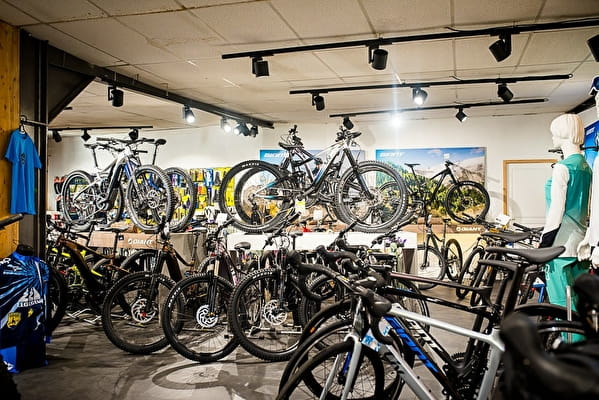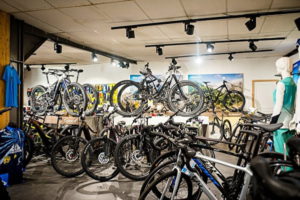Pros and Cons of Local vs. Chain Bike Dealers
3 min read
When buying a bike, one of the critical decisions you’ll face is where to make your purchase. The choice between local independent bike dealers and national chain retailers can significantly impact your buying experience and, ultimately, your cycling journey. In this article, we’ll explore the pros and cons of both local and chain bike dealers, all while considering the innovative addition of collapsible bikes to the market.
Local Independent Bike Dealers:
Pros:
- Personalised Service: Local bike dealers often offer a more personalised and customer-centric experience. They take the time to understand your needs, riding style, and preferences to recommend the perfect bike.
- Community Connection: Local dealers are deeply rooted in the cycling community. They organise group rides, sponsor local events, and contribute to the growth of the cycling culture in your area.
- Expertise: Local bike shops are typically staffed with experts who can provide valuable advice on bike selection, maintenance, and repairs.
- Customization: Many local dealers offer customization options, allowing you to build a bike tailored to your specifications.
- Test Rides: You can often test ride several bikes to ensure a comfortable fit and the right feel for your riding style.
Cons:
- Limited Inventory: Local dealers may have fewer bike models and accessories than chain retailers.
- Price: Bikes at local shops might come with a slightly higher price tag due to the personalised service and expertise offered.
Chain Bike Dealers:
Pros:
- Variety: Chain bike dealers usually have a vast inventory, offering a wide range of bike models, brands, and accessories.
- Competitive Prices: Due to their large-scale operations, chain retailers can sometimes offer more competitive prices and promotions.
- Convenience: Chain stores often have multiple locations, making finding and purchasing a bike more convenient.
- Wider Reach: Chain dealers may offer a broader range of options for collapsible bikes, catering to a growing trend in the cycling market.
Cons:
- Less Personalised Service: The large size of chain retailers can sometimes result in less personalised customer service and a less intimate shopping experience.
- Knowledge Variation: The expertise of staff members at chain dealers may vary, and you might sometimes receive a different level of guidance than at a local shop.
- Community Engagement: Chain retailers may be less involved in local cycling communities and events.

Collapsible Bikes:
Pros:
- Portability: Collapsible bikes are designed for easy transport and storage, making them ideal for commuters and those with limited storage space.
- Multimodal Commuting: Collapsible bikes can seamlessly integrate with other modes of transportation, such as buses, trains, and cars.
- Innovation: They represent a growing trend in the cycling industry, with continuous innovations in design and technology.
- Eco-Friendly: Collapsible bikes contribute to reduced carbon emissions and congestion in urban areas.
Cons:
- Cost: Collapsible bikes can be more expensive than traditional non-collapsible counterparts.
- Complexity: Some collapsible bikes may have more complex folding mechanisms, which could require practice to fold and unfold efficiently.
- Weight: While designed for portability, collapsible bikes can still be relatively heavy compared to non-collapsible models.
The Decision-Making Process:
When choosing between local and chain bike dealers, as well as considering a collapsible bike, there are several factors to consider:
- Your Needs: Assess your specific cycling needs, whether for commuting, recreational riding, or racing.
- Budget: Determine your budget and evaluate which dealers offer bikes within your price range.
- Local Community: Consider your desire to support local businesses and engage with the cycling community.
- Bike Type: If you’re interested in collapsible bikes, research which dealers offer various options and the latest innovations.
- Customer Service: Think about the level of customer service and expertise you require and the importance of test rides.
- Convenience: Weigh the convenience of multiple chain dealer locations against the personal touch of a local shop.
While considering collapsible bikes, the choice between local and chain bike dealers ultimately depends on your individual preferences and priorities. Each option has advantages and disadvantages, and what matters most is finding the bike and buying experience that aligns with your cycling goals. Whether you value personalised service, a wide selection of options, or the portability of collapsible bikes, the world of cycling has something for everyone waiting to be explored.







